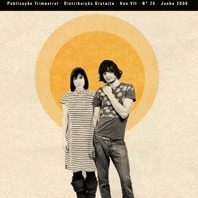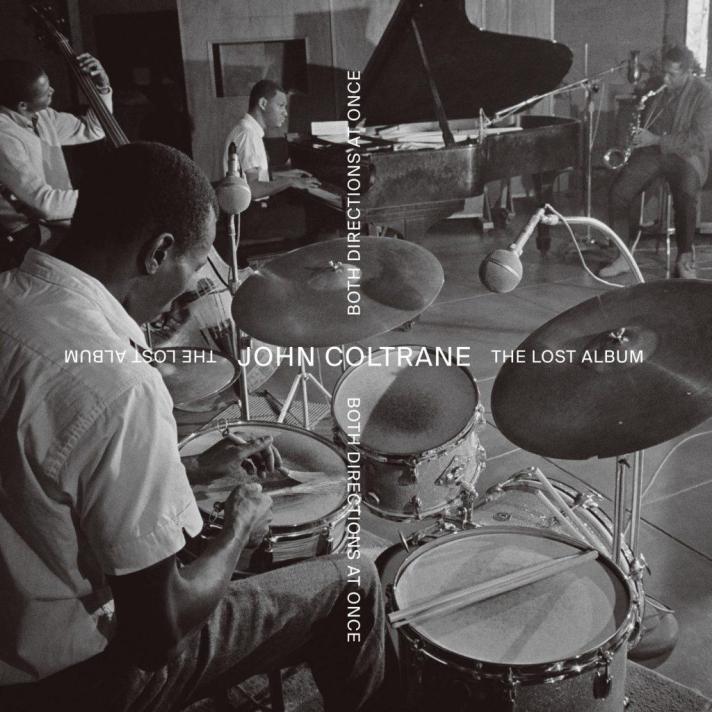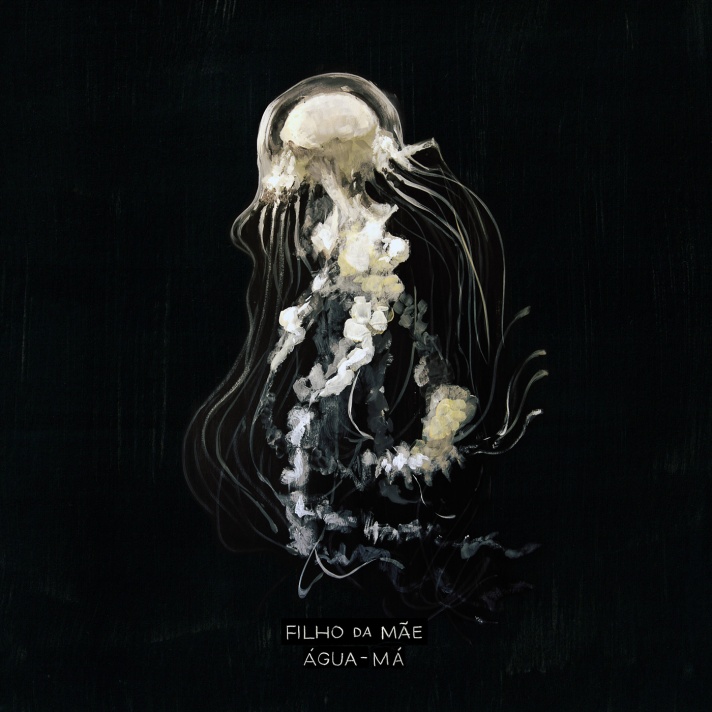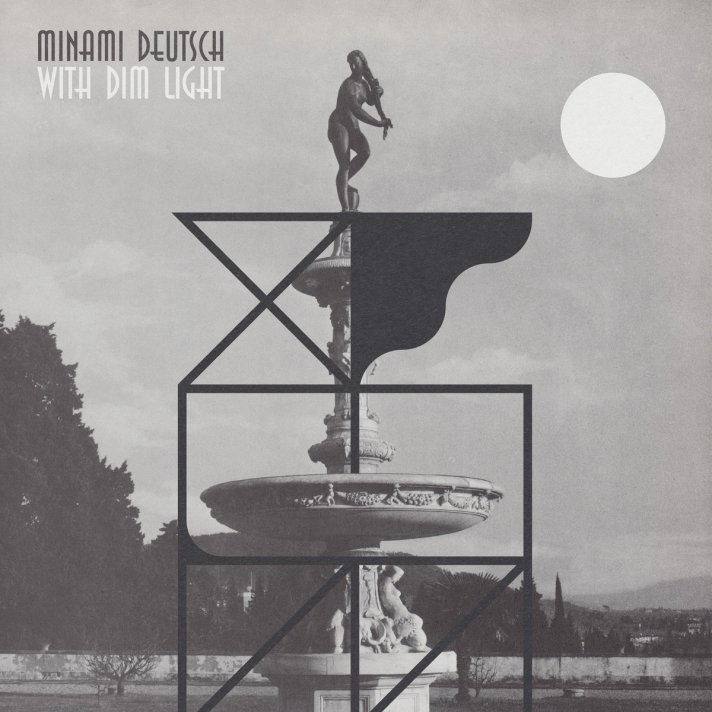
by Guilherme Lucas (freely translated by Raquel Pinheiro)
One of the conclusions, in a way of assessment, that can be inferred about California, Sean Riley’s (aka Afonso Rodrigues) first solo work, is that it is, without great doubts or hesitations, the best and the happiest consequence of Misfit, the lastest Legendary Tigerman work. Therefore, in the future, it will not be unreasonable, to recall California as a kind of Misfit’s good side (obviously, without neglecting the quality of said Tigerman album).
California was born from an invitation from Tigerman to musician friend Afonso Rodrigues, so that, on the ride of Misfit’s recording, both performed on American soil, an album that was already a protracted intention of the two – always kept in the drawer – since a few years ago. Using the “excuse” of the beatnik imaginary road trip (which, in truth, has, over time, become a commonplace for any kind of redemption – whatever it may be – for many rock musicians and others; which is a kind of cursed and longed-for Holy Grail that needs to be experienced at least once in a lifetime), California songs were recorded conceptually and lo-fi in hotel and motel rooms after the end of Misfit’s recordings , while the two musicians daily recharged their batteries of inspiration on a long journey through the barren roads of the American dream.
California is an album of 7 superb songs within a folk -country-rock register, one of those that at the end of the hearing raise some questions in search of clarification and some light. One of them is about music‘s simplicity and its magic effect: without discard Afonso Rodrigues’ whole career within a band with Sean Riley & The Slowriders and Keep Razors Sharp (which is very meritorious and of quality), we come to the conclude that, for the musician, everything has always been possible without them, as far as excellence is concerned, a thing California undeniably possesses.
Because it is naked of all production and studio tricks inherent to recordings with bands, this record is free of any artificialism; it is doubly sincere and, therefore, conveys a rare tímeles beauty to be listened to by any music lover who enjoys quality music, regardless of musical genres. It’s the kind of timeless, impervious to fashion album that lasts beyond band’s hypes.
Often one has to go down winding paths until one can get to the main road, and this seems to be the real reason. What pleases me the most in this album is the total irrelevance, or total lack of need, of including other instruments or arrangements (which is what always leads to the formation of bands, and, in time, always force the reach of other broader and more ambitious goals – and that is almost always reason for conflicts or irremediable differences). Afonso Rodrigues’ extraordinary voice and his acoustic guitar (his first one, with which he began to compose and which, therefore, also is an inspiring and relevant object in the attainment of California, as a return to origins and a certain purity), allied to a firm and well-directed discipline for writing and composing true songs, is, by itself, sufficient and brilliant.
All the songs of the album are simply precious in their own way, but for personal tastes Drop Me a Line and the compelling cover of Leonard Cohen ‘s Chelsea Hotel No. 2, (that he wrote to Janis Joplin), are the greater songs of the album.
Because it is immeasurably much harder to make a simple and beautiful album (as it’s California’s casa), than “ten thousand albums” of bands equal to all others, this is a work to be listened to as already being one of the best Portuguese albums launched in 2018.
//// —- //// —- ////
por Guilherme Lucas
Uma das conclusões, que em jeito de balanço, é possível inferir em relação a California, o primeiro trabalho a solo de Sean Riley (aka Afonso Rodrigues), é que é, sem grandes dúvidas ou hesitações, a melhor e a mais feliz consequência de Misfit, o último trabalho de Legendary Tigerman. Não será por isso despropositado recordar California, no futuro, como que uma espécie de lado bom de Misfit (sem menosprezar obviamente a qualidade desse álbum de Tigerman).
California nasce de um convite de Tigerman ao amigo músico Afonso Rodrigues, para, à boleia da gravação de Misfit, ambos realizarem em solo norte-americano, um álbum que era já uma intenção adiada dos dois – sempre guardada na gaveta – fazia uns anos. Usando a “desculpa” do imaginário da road trip beatnik (que, diga-se em abono da verdade, tornou-se no tempo um lugar comum para uma qualquer redenção – seja do que for – para muitos músicos de rock e não só; como que uma espécie de Santo Graal maldito e ansiado, que precisa de ser vivenciado pelo menos uma vez na vida), as canções de California foram gravadas conceptualmente e em modo lo-fi em quartos de hóteis e móteis, após o final das gravações de Misfit e enquanto os dois músicos recarregavam diariamente as suas baterias de inspiração, em longa viagem pelas áridas estradas do sonho americano.
California é um disco de 7 soberbos temas dentro de um registo folk/country/rock, daqueles que no final da audição suscitam algumas questões em busca de esclarecimento e de alguma luz. Uma delas é sobre a simplicidade da música e o seu efeito mágico: sem desprezar toda a carreira de Afonso Rodrigues em banda com os Sean Riley & The Slowriders e com os Keep Razors Sharp (que é muito meritória e de qualidade), chegamos à conclusão que afinal para o músico tudo sempre foi possível sem as mesmas, no que à excelência diz respeito, e que California inegavelmente possuí.
Porque despido de todas as produções e truques de estúdio inerentes às gravações com bandas, este disco é isento de qualquer artificialismo; é duplamente sincero e por isso transmite uma beleza rara e que pode sempre ser escutada no tempo por qualquer melómano que aprecie música com qualidade, independentemente de géneros musicais. É o tipo de álbum intemporal e estanque a modas e que perdura para além dos hypes das bandas.
Muitas vezes é preciso percorrer sinuosos caminhos até se conseguir apanhar a estrada principal, e este parece ter sido o verdadeiro motivo. O que mais agrada neste álbum é a total irrelevância ou a total dispensabilidade da inclusão de outros instrumentos ou arranjos (que é sempre o que leva à constituição de bandas e que sempre obrigam no tempo a atingir outros objetivos mais alargados e ambiciosos – e quase sempre sendo motivos de conflitos ou divergências insanáveis). A voz extraordinária de Afonso Rodrigues e a sua guitarra acústica (a primeira de todas com que começou a compor e que é por isso também objeto inspirador e relevante na realização de California, como que um regresso às origens e a uma certa pureza), aliados a uma disciplina firme e bem direcionada para a escrita e composição de verdadeiras canções, é por si só suficiente e brilhante.
Todas as canções do álbum são singelamente preciosas à sua maneira, mas por questões de gosto pessoal Drop Me a Line e a envolvente versão de Chelsea Hotel N.º 2, de Leonard Cohen (que a escreveu dedicada a Janis Joplin), são as músicas maiores do álbum.
Porque é incomensuravelmente muito mais difícil de fazer um álbum simples e belo (como é o caso de California), do que “dez mil álbuns” de bandas iguais ao resto, este é um trabalho a ser escutado obrigatoriamente como já sendo um dos melhores álbuns nacionais lançados em 2018.
Because it is immeasurably much harder to make a simple and beautiful album (as it’s California’s casa), than “ten thousand albums” of bands equal to all others, this is a work to be listened to as already being one of the best Portuguese albums launched in 2018.
(aFirmação 2018/Sony Music Portugal)










